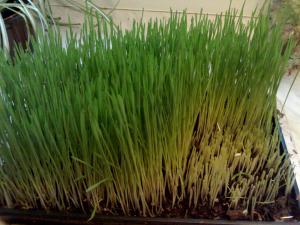I hope all of you are OK and managing to stay safe and sane at home in this weird world. Here are some tips to help your immune system:
Most of your immune system is in your gut so it matters what you eat and drink. Eat more:
- Oily fish and eggs for vitamin D
 which has many health benefits, including priming our T cells
which has many health benefits, including priming our T cells -
Vegetables which give you lots of
 vitamins, minerals, enzymes and antioxidants plus fibre to feed the good bacteria in your gut.
vitamins, minerals, enzymes and antioxidants plus fibre to feed the good bacteria in your gut. - Live natural yoghurt, k
 efir, lassi and fermented vegetables to repopulate your good bacteria.
efir, lassi and fermented vegetables to repopulate your good bacteria. - Coconut oil which has anti-bacterial and anti-viral properties.
Supplement with:
- Vitamin C (it’s quickly flushed out of your body so take some every day)
- Magnesium (most people are deficient)
- Selenium (2 or 3 Brazils nuts a day is
 plenty)
plenty) - Zinc (good food sources are seafood, lamb, turkey and pumpkin seeds)
- Vitamin D (most of us are short of this unless we supplement – especially at this time of year when our skin hasn’t seen sunshine for so long)
Avoid:
-
Sugar – it feeds bad bacteria, unbalancing your system.
- Processed food – you want your body to cope with the virus, not use all its energy fighting bad food.
- Alcohol.
Other tips:
- Eat right for your metabolic type (I’m now offering testing by Skype/telephone).
-
Get lots of sleep to make the powerful anti-oxidant melatonin.
- Exercise, especially out in the fresh air
 (only with members of your household of course!). It will help you sleep better too.
(only with members of your household of course!). It will help you sleep better too. - If you smoke, give it up now.
- Wash with actual bar soap whenever you possibly can. Coronaviruses are in a fatty ‘envelope’ which can be destroyed by soap. Also soap won’t damage your own protective bacterial like antibacterials do. Joanna Blythman retweeted this Tweet thread on why soap is so good.Solutions of ethyl alcohol and isopropyl alcohol at between 60% and 80%, plus 3% hydrogen peroxide are effective for cleaning surfaces
- Manage stress and prioritise self-care. Your mental health, physical health and immune system are connected so it helps to keep a sense of purpose and optimism. We won’t get back to normal for some time yet so look after yourself and do things that relax you and give you joy.














